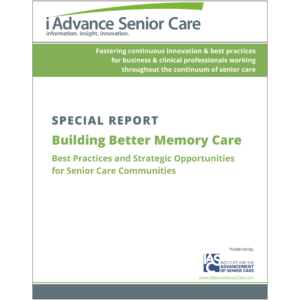Common resident scuffles lead to physical injury
I heard whispers before breakfast that John (pseudonym) had been hurt by his roommate, Payne (pseudonym), who had been here for a week or so. Although he was short with residents and staff, he had not been violent.
When I arrived in the dining room, I saw that John's left eye was blackened and swollen shut. He is traumatically brain injured and can move some. But he uses a geri-chair and needs assistance with everything.
As I watched John during breakfast, I knew his eye had to hurt. Many of the aides were angry that he had been injured. John is not an angel. He can hit with his good hand and kick with his good leg. But his ability to defend himself is limited, and I wonder if he somehow provoked his roommate.
It is obvious that Payne has a cognitive or mental health problem. When staff talked with him, he showed no remorse and no signs of engaging in a struggle. John was, however, moved out of their semi-private room.
Scuffles are common here. They sort of come in spurts of two or three. If a resident is loud and another resident does not like it, a slap or hit may be the result. One male resident has had a few facial bruises because of his persistent yelling.
I understand that people in the community get assaulted every day. But I do not think it is something that people consider possible when they come to a nursing home.
When I first moved into a long-term care facility, I had a private room. Security was less of a concern even though wanderers did come in my living space. But here in this “behavioral” facility, most of us have a roommate and sometimes residents have a great deal of difficulty getting along. Living with a roommate changes the dynamic of each resident's life and their ability to be safe.
I do not envy the nurse who had to inform John's family about the incident and his injury. He is healing, but danger lurks when residents who dislike each other live so closely together.
I Advance Senior Care is the industry-leading source for practical, in-depth, business-building, and resident care information for owners, executives, administrators, and directors of nursing at assisted living communities, skilled nursing facilities, post-acute facilities, and continuing care retirement communities. The I Advance Senior Care editorial team and industry experts provide market analysis, strategic direction, policy commentary, clinical best-practices, business management, and technology breakthroughs.
I Advance Senior Care is part of the Institute for the Advancement of Senior Care and published by Plain-English Health Care.
Related Articles
Topics: Staffing











